Featured
My Fears For Yakubu’s INEC …Of Partisanship, Bias, Untrustworthiness
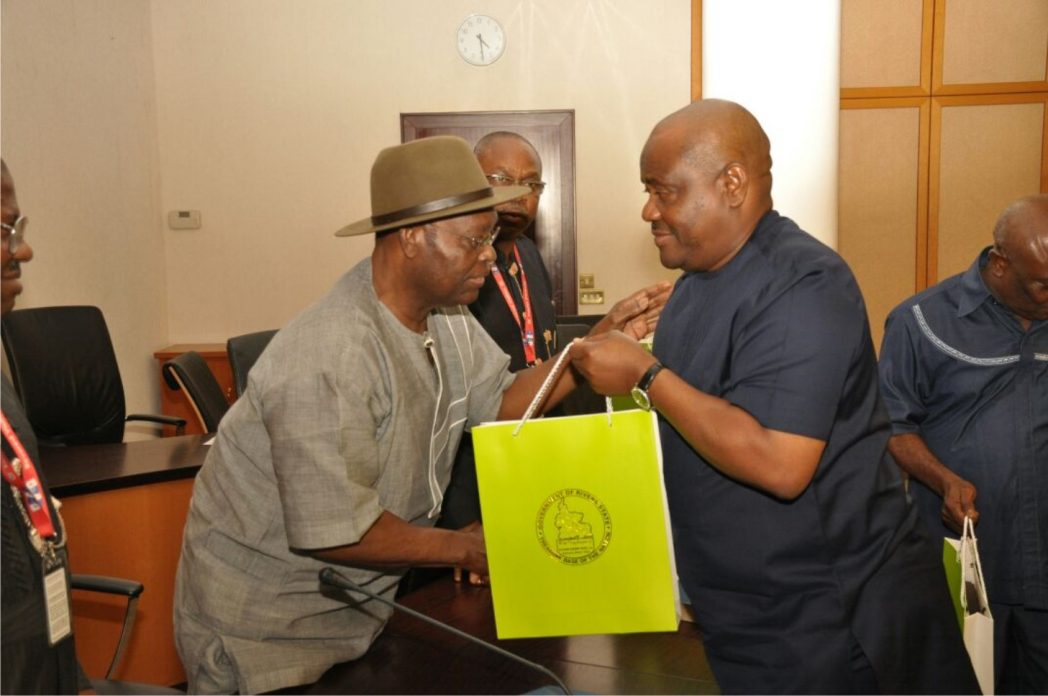
When the Goodluck Jonathan Presidency appointed renowned academic, frontline civil rights crusader and unrepentant apostle of democracy. Professor Attahiru Jega, as electoral umpire, the political plane in Nigeria agreed that the nation’s Independent National Electoral Commission (INEC) would indeed be independent. Adjudged too forthright, no government, anxious to hang-on to power, would have risked considering Jega as first choice.
But because President Jonathan wanted to institutionalize true democracy, even at great risk to his re-election bid, he listened to public opinion which, at the time weighed overwhelmingly in favour of Jega, and went on to make the pronouncement.
The appointment of the current INEC Chairman, Prof. Mahmoud Yakubu failed to attract that measure of public acceptance. Infact, his, seemed an after-thought when, first attempt by the Muhammadu Buhari’s Prsidency to impose a relation, Amina Zakari attracted fierce public criticism of unimaginable kind. It also revealed the obvious signs that Buhari would not be as ‘careless’ about power, as did Jonathan, to allow INEC be run by an ‘outsider’. If not, being a southerner, since Jonathan appointed a Northerner as INEC Chairman, Buhari was under moral obligation to appoint a Southerner, for purposes of balance.
When Jega exited the office, he handed over to the next most senior, Ambassador Ahmed Wali, as Acting Chairman, but upon assumption of office, Buhari quickly chose a relation in INEC, Hajiya Amina Zakari as Acting Chairman amidst public uproar. It was in her replacement that Prof. Yakubu emerged as INEC Chair without any contributions by the Nigerian public as was the case with Prof. Jega’s appointment.
The immediate implication is the fear that Yakubu may well be working only for the interest of his appointer and not for the furtherance of democracy as was the case with Prof. Jega. Many indeed voiced skepticism over the needed neutrality of Yakubu and the possibility to defend electoral victory against his appointor’s party.
Public fears were proved right, when, within a short time, every election not won by the All Progressives Congress (APC) was declared inconclusive but those won by APC, conclusive, even in similar circumstances.
From Kogi to Bayelsa, and Rivers the same pattern of obvious partisanship ran through. When elections were seen going the way of the opposition, a make-belief violent atmosphere is conjured and those elections declared inconclusive for security reasons, to enable the APC more time to replan.
It is often said that one can fool some of the people all the time or even all of the people some of the time, but surely not all the people all the time. This is what INEC’s criminal delay of rerun elections, for Rivers State and subsequent Senate reproach clearly magnifies. INEC bought time, repeatedly claiming insecurity in Rivers as reason for its inability to conduct credible elections, while in fact it was because, its attempts to subvert the people’s will was resisted by voters in every step, even with the deployment of armed security in questionable numbers.
The Ruling APC has never hidden its desperation to control oil-producing states like Akwa Ibom, Edo, Rivers and Delta States. Infact, when the Supreme Court delivered judgement on Governorship polls on both Rivers and Akwa Ibom States, APC Chairman, Chief John Oyegun seemed heartbroken, and was quoted as saying, even with the fall in oil prices, Rivers and Akwa Ibom are not states we should lose to PDP.
With the governorship lost, and legislative seats in Rivers thrown open and up for grabs, by the in Appeal Court ruling, APC’s hopes of controlling the state, by winning majority seats in the 32-member Rivers State House of Assembly and using that to ultimately unseat the elected PDP Governor, Nyesom Wike, was rekindled. That indeed was the calculation of both INEC and APC before the rerun of March 19, 2016.
To the shock of INEC, 10 out of 11 early results of election into the State House of Assembly went the way of PDP and with leads, in nearly all the remaining 21 others. Did that inform INEC’s declaration of those election inconclusive, only to over-dramatize violence, violence not worse than that in Sambisa Forest where, Jega’s INEC conducted elections in 2015?
The same signs followed elections into the three Senatorial seats, and those of 21 House of Representatives. With early favourable results and massive turn-out of Rivers people even in the face of the over militarization of the electoral preccints, it was made very clear that the APC could not win the rerun.
Sadly, after declaring the polls inconclusive, INEC did not see the urgency to conclude its work in Rivers. Meanwhile, for the purpose of the election INEC had carried-out a questionable re-posting of personnel which returned back to the State, the INEC Commissioner, who ran the state office under former Governor Amaechi in office. Did that suggest anything?
What informed that posting just days before the re-run? What special job was the Akwa Ibom Elder brought back to conclude, that he didn’t before he was transferred out of the State?
But most annoying was the reported threat by a leader of the APC that since his party was denied the governorship, he would see how Rivers will be represented in both the Senate and the House of Representatives. A case of the dog in a manger, ‘if cannot get it, nobody else should’.
True to that threat, INEC did not find any urgency in concluding elections to guarantee Rivers representation in the National Assembly. That was in spite of the fact that the PDP had swept nearly all House of Assembly, Senate and Representatives seats in the 2015 polls, but were reprieved by the Appeal Court ruling of December 11, last year.
That ruling had unseated the three Senators, all elected on the PDP platform, 12 House of Representatives members also of the PDP and a huge majority of State House of Assembly members. With the eventual re-run of March 19, 2016 producing 10 out 11 PDP seats, as many as 21 seats are yet to be filled.
That indeed was not only immoral on the part of INEC, it amounted to a grievous breach of the Constitution which emphasizes equal and adequate representation of all states in the Senate (Three each) and of the House of Representatives, according to Federal Constituencies.
The economic and socio-political denial stemming from INEC’s refusal to conduct elections in a timely fashion, as directed by the Appeal Court, is indeed huge, retrogressive and undemocratic. Yet Yakubu’s INEC felt unperturbed, even with repeated appeals and protestations by the Rivers government.
It is indeed condemnable that INEC would allow itself to be used in making Rivers a constant theatre of war, using inconclusive elections as excuse, and rather than claim failure, blames its ineptitude and obvious partisanship on security challenges.
Is not a shame that it would take the intervention of the Senate for INEC to quickly take a December 10 date for another rerun it has politicized for months, just to deny Rivers people their due? This is indeed why many are curious about what INEC hopes to achieve with the Rivers elections this time around.
Some have even asked: “If Rivers State’s governor were APC, all Senators elected were APC and all the House Assembly seats declared vacant were originally won by APC, and also enjoys the amount of support the Wike-led PDP in the State enjoys, will INEC delay any re-run even if Boko Haram were operating in the State? From the Presidential elections to the State Assembly polls, a pattern runs through, that majority of Rivers people are pro-PDP. Expanded further, the same state has also been governed by the same party since 1999 and without jerrimandering of a criminal kind, the support cannot turn APC over-night.
Besides, within his very short period in office, Rivers State Governor, Nyesom Ezebunwo Wike, has through massive infrastructural development drive, further endeared himself and his party to the people, which makes rigging of the elections very difficult, event with battalions of armed men.
That is the reality on ground. A reality INEC seems reluctant to behold and has instead been moving against the tide by resorting to partisanship, criminal denial and delay tactics to buy time for a possible reversal of fortunes.
These are why many are uncomfortable with a Yakubu-led INEC conducting a free, fair and credible re-run. And worse still, a national election that would equal that by Prof. Jega’s INEC by half.
My Agony is that a Federal Government that assumed power on the foundation of true democracy, found no reason to call INEC to order all these days even in the face of obvious denial of justice. Instead, it took a pro-active Senate to rekindle the people’s hope for democracy, no matter discomforting the day gone had been.
If I were Prof Yakubu, with so much disapproval by the people and questions raised about my neutrality, I would disqualify myself by resigning honourably, as did members of the bench in Ondo.
Soye Wilson Jamabo
Featured
We’ll Comply With Supreme Court Judgement, Fubara Assures …As CJ Inaugurates Judges’ Quarters
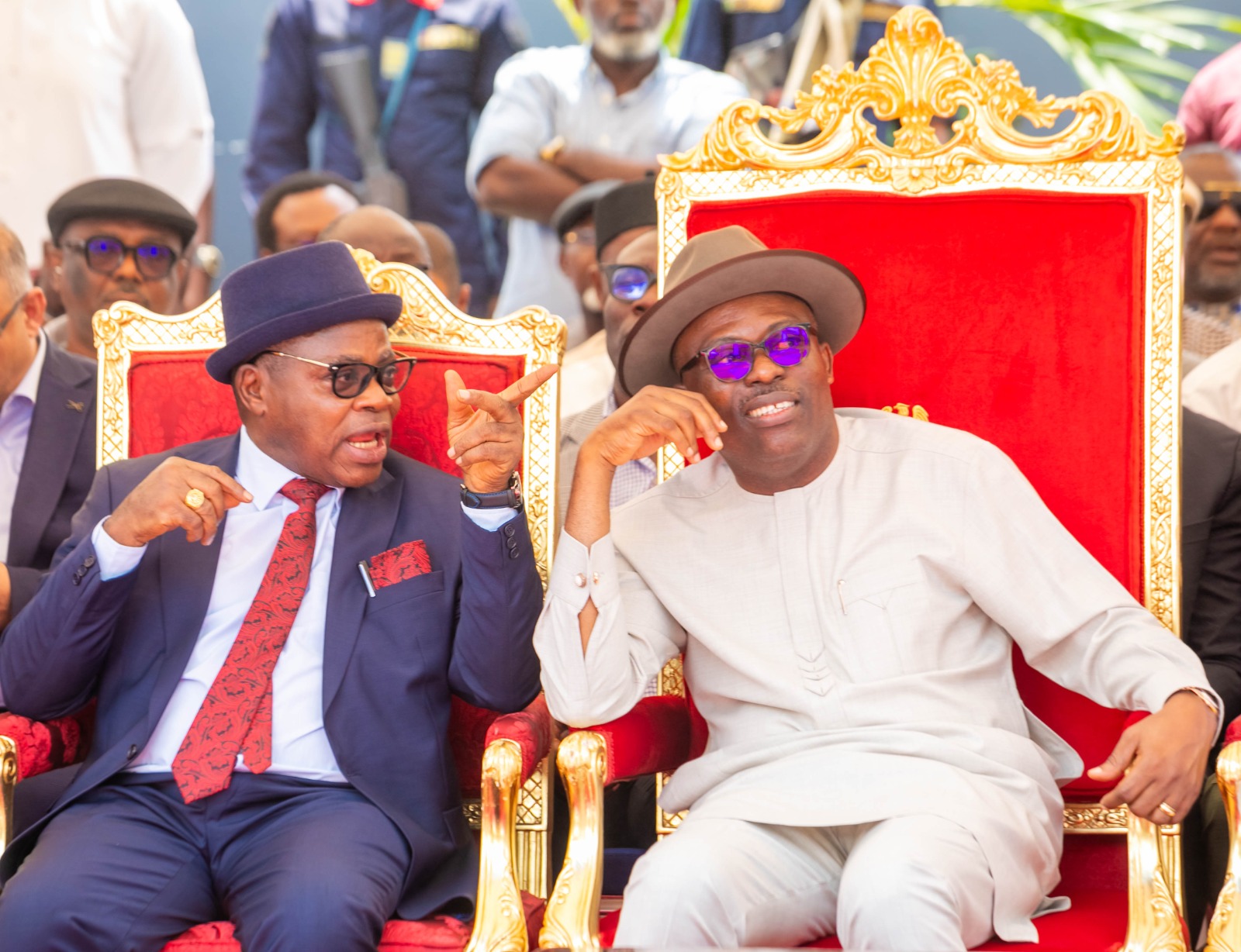
Rivers State Governor, Sir Siminalayi Fubara, has assured that his administration will implement, to its fullest, the recent judgment of the Supreme Court of Nigeria on the political crisis in the State.
The Governor maintained that what is important, in all of the happenings that had been witnessed, has been the protection of the interest of Rivers State because it must be above whatever personal interest that anybody could hold and canvass.
Governor Fubara gave the assurance during the inauguration of the new Judges’ Quarters, a housing facility completed by his administration for Judges indigenous to Rivers State by birth or marriage, at Old GRA, in Port Harcourt City Local Government Area, yesterday.
The Governor explained: “It has not been an easy 16 months, but what is important is the interest of our State, which must be above our personal interest. I want to say it here, very loud and clear to everyone, the Supreme Court has given a judgment, my administration is going to implement the judgment to its fullest. The reason is clear: It is not about me, it is about the good of this State.”
Governor Fubara alluded to the quantum of loss, in terms of money expended, in prosecuting the political crisis, on both sides, which has gone to waste, regrettably.
Such financial resources and other efforts, he said, would be more profitable, if they were synergised, and channeled to courses that promoted the genuine well-being and good of the State, adding that something more assuring would have been showcased.
Governor Fubara stated: “Thank God where we are today, I can assure you publicly that, any day, any time, I have not gone back on that my statement: that nothing (no price) is too big to pay for peace in this State, because at the end of the day, it is about our people. It is not about me, I will leave office but the good work that I have done will speak for me and will defend my generation.”
Commenting on the project, Governor Fubara emphasised that it further shows that his administration takes the issue of welfare, particularly of judicial officers, seriously, explaining that his administration inherited the project and with reports from the Ministry of Justice and some concerns from the Judiciary, it became imperative to continue with it.
He said, “We give glory to God that today, we have completed this project, and we are willing and ready to hand it over to the lucky judges who are going to live here so that they can perform their duties effectively.”
Governor Fubara pointed to the need for proper maintenance of the housing facility and the entire premises so that it can offer required satisfaction, maximally, and assured the Executive’s readiness to provide support in that regard.
Performing the inauguration, Chief Judge of Rivers State, Justice Simeon Amadi, recalled how he laid the foundation stone of the project, which was initiated by the immediate past administration on May 22, 2023, and thanked Governor Fubara for continuing and completing the project, which now represents another milestone and great accomplishment for the Rivers State Judiciary.
He added, “We are pleased with this landmark achievement, which represents the continuation of the policy of providing befitting residential accommodation for judges of Rivers State on owner-occupier basis or monetary ground in lieu there-off. This is backed by the Rivers State Housing Scheme for Judicial Officers Law No. 10 of 2021 passed by the Rivers State House of Assembly, and signed into law by the immediate past Governor of Rivers State.
“The Rivers State Government, in the past years, has been in the fore-front in ensuring that judges are quartered while in service, and in recent years, has gone further to allocate official quarters to judges on the basis of owner-occupier or monetary ground of a fixed sum in lieu there-off.
“The policy of providing official accommodation for judges on owner-occupier basis or monetary ground in lieu there-off has reduced greatly the pressure on judicial officers who hitherto struggle to build retirement home while in service with limited resources. Such pressure and desire to own retirement home in time past was a major concern and have its own impact on job performance”, he added.
In her address, the Solicitor-General and Permanent Secretary, Rivers State Ministry of Justice, Mrs Ibiwari Clapton-Ogolo, explained that the Rivers State Housing Scheme for Judicial Officers, Law No. 10 of 2021 established a housing scheme for judicial officers who must be indigenes of Rivers State either by birth or marriage.
Mrs Clapton-Ogolo said: “The scheme provides for ownership of a decent accommodation in the state by every judicial officer who is an indigene of Rivers State or married to an indigene of Rivers State or monetization of the accommodation, subject to the approval of the government.
“In accordance with the above law, today, the Honourable Chief Judge of Rivers State will commission seven duplexes of five bedrooms, which are exquisitely furnished. Our judges deserve nothing less. I pray that these duplexes will not just be a living houses for our judges, but homes where our judges will find peace and rest as they discharge their duties, as judges, to God and to men,” she added.
Featured
Fubara Assures Residents Of Adequate Response To Fire Outbreaks In PH …Commissions Rebranded Borokiri Fire Service Station, Vehicles
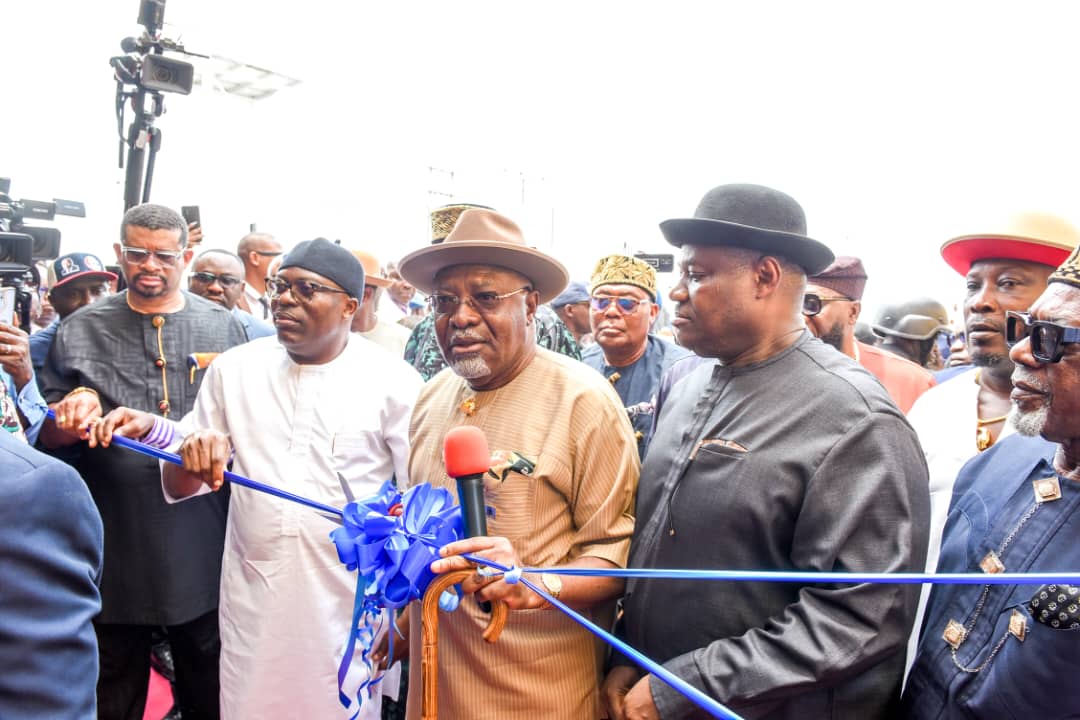
Rivers State Governor, Sir Siminalayi Fubara, has said that the Borokiri Fire Service Sub-Station in the Old Port Harcourt Township will serve as a local-level fire disaster management resource centre to provide quick response to emergencies and ensure protection of lives, property, and the environment from fire disasters.
Governor Fubara gave the assurance while inaugurating the Rivers State Fire Service, Borokiri Sub-Station in the Old Port Harcourt Township in Port Harcourt City Local Government Area, last Thursday.
The Governor stated that fire service stations are essential components of critical services that must be provided by any government for its people as proof of commitment to their safety.
Governor Fubara maintained that the inauguaration of the station, therefore, aligns with what government must do without fun-fare because discharging statutory responsibility to the citizenry is not anything to advertise.
He said: “The purpose of government is to provide services. The purpose of government is to protect lives and property. So, while we are doing those things that we are elected for, and we now start showcasing it, sometimes, it doesn’t make any sense. But, that is what the business has really turned into, which is, whatever you are doing now, you have to showcase so that they will know that you are really working.”
Governor Fubara also said: “Some persons will commission borehole, some will commission all sorts of things, and they do adverts for it. But for us, we have chosen to showcase to the world vital and most needed items of service as a government. What we are showcasing here today is one of the essentials of governance. Fire service station is a very important component in every system.”
Governor Fubara explained that some days ago, he unveiled the modernised and remodelled Headquarters of the Rivers State Fire Service to signal the restorable of stable and regular response to fire disasters across the State.
He said, three days after, he has returned to show to the world a similar word of revitalisation that has been achieved on the Borokiri Sub-Station that will end years of absence of such services available to the residents in that part of the township.
Governor Fubara stated: “Borokiri is a section of the Town, one of the densely populated areas of Port Harcourt City. The essence of rehabilitating this Fire Service Station is to cater to the huge population that is living here.
“We had cases of fire outbreak, from time to time, and we have never adequately responded to them. I strongly believe that after this minute, whatever that would happen, provided it is within the power and jurisdiction of this station, it would be combated adequately.”
Governor Fubara expressed delight over what has been achieved and made available to the people, who are also grateful, and appreciated it with gratitude, exemplified with the joy and excitement on their faces, stressing that this is the reason why his administration will remain resolute, and continue to work to better the lives of all residents in the State.
Performing the inauguaration, former Minister of Transport, Dr Abiye Sekibo, said the project reflects purposeful leadership that has prioritised the wellbeing of the people because they will get assistance to tackling fire incidences when it occurs.
He pointed to the massive rehabilitation work that has been achieved on the long abandoned fire station, which now offers the assurance of more jobs created to engage willing youths to work, adding: “Your Excellency, I was Secretary to the Government in this State, this fire station existed then. I must confess that what I am seeing today is a state-of-the-art fire station. Thank you for your care and for your love.
“This is also an opportunity to expand the possibility of work for our people. When there are instruments to work with, you need people to use them and drive these vehicles to fight the fires. I am sure that our Governor will use this, as a point of reference, to ensure that we have employment within the system that gives our youths something to do.”
Dr Sekibo also said that Governor Fubara carries the collective hope and vision of all Rivers people who are resolute and determined to continue to support him, saying that this is the more reason why President Bola Tinubu should also support Governor Fubara who, as an ally, has continued to work for the success of his administration.
Dr Sekibo also said that, for the first time in 24 years, the Ijaw Nation, which is domiciled in more than 8 local governments of Rivers State, now have the opportunity of governing the State and enjoys massive support of the people.
So far, he noted, the leadership provided by Governor Fubara has been tested in the bold decisions that he has taken to steer the progress of Rivers people, emphasising: “The work our Governor has done in this State in the short time he has been Governor, shows that he prioritizes our interest, and indeed, cares for the unity of this nation.
“This Governor, at a time when our funds are seized, he made sure that there was no problem in this State. He made sure that essential services continued, he didn’t try to create problems for the Federal Government.”
He pointed to how Rivers people have always supported the government at the centre and have not ceased, adding that under the leadership of Governor Fubara, Rivers people are still and will continue to support the President Bola Tinubu-led Federal Government.
He explained: “Mr President, the dear President of Nigeria, our own President Bola Ahmed Tinubu, we, the Rivers people, have always supported the government at the centre. We have always worked with the government at the centre. This Governor, Sir Siminalayi Fubara, has convinced Rivers people that they must stand with their President, and so, we stand with you.
“There might be persons telling you stories, especially when they see people like me, who was a core Atiku man. They will say, don’t you see, it is Atiku people that are with the Governor. There are also Atiku people that are with them there in Abuja. But, the Governor has convinced us that the place to be is to be with our President. So, Mr President, we stand with you. We stand with you because that is the right thing to do. The election delivered you as our President, and so, we stand with you. The election also delivered our Governor, our son, and we stand with him.”
Dr Sekibo advised Rivers people, who felt demoralised by the Supreme Court judgment, to brace up and give unalloyed support to Governor Fubara, who has assured of obeying the ruling to the latter.
In his speech, Rivers State Commissioner for Special Duties, Dr Samuel Anya, said the Rivers State Fire Service, Borokiri Sub-Station was abandoned for years, but quickly added that Governor Fubara has rehabilitated the structures, provided necessary materials, equipment and fire trucks to serve the people better, and guarantee their safety.
Featured
We’ve Strengthened Rivers Fire Fighting Capability – Fubara
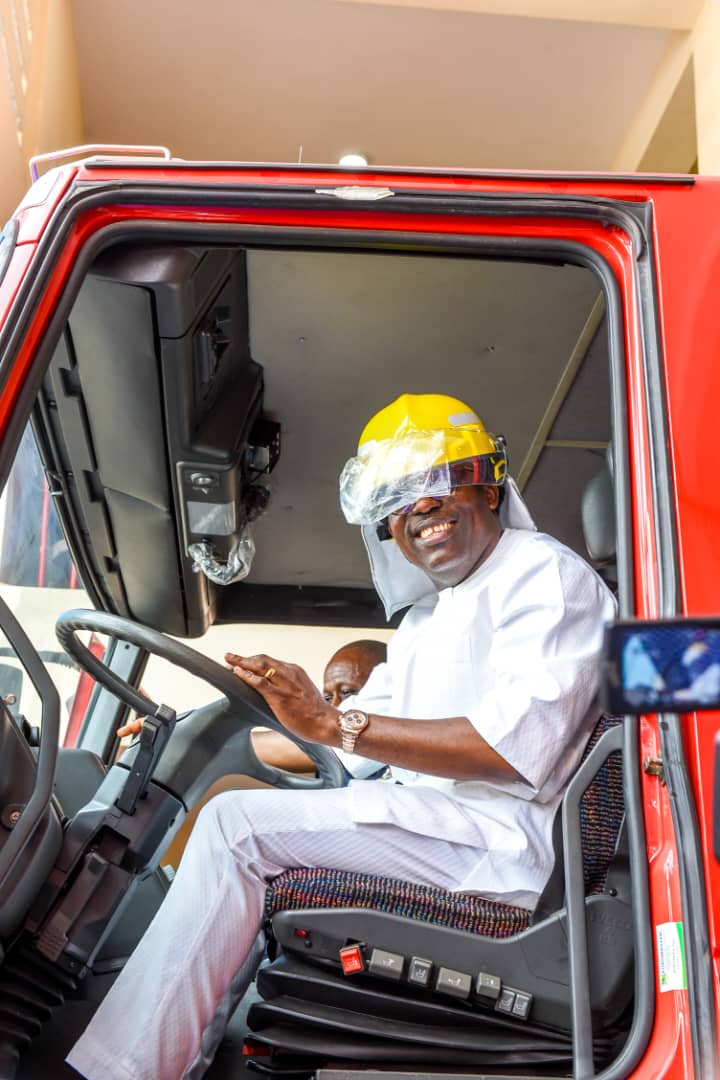
Rivers State Governor, Sir Siminalayi Fubara, has said that the modernised fire-fighting units with new buildings, necessary machinery, materials and equipment will strengthen the emergency response capability of personnel to fire incidences in the State.
The Governor pointed to how the provision will drastically reduce, if not eliminate, the vulnerability of Rivers population to fire disasters, as according to him, there will be timely assistance to victims to reduce damage and bolster conditions for sustainable development.
Governor Fubara, who gave the assurance while inaugurating the Rivers State Fire Service Headquarters Station, located by Isaac Boro Park Flyover, in Port Harcourt City Local Government Area, yesterday, said the gesture serves as a consolidation of the promise made, in line with his vision of governance: to provide quality service to the good people of Rivers State.
He explained that some years ago, the State was at the mercy of the multi-nationals that had functional fire trucks to respond to most fire incidences, and pointed to setbacks that greeted some emergencies, adding that the records of losses to fire incidences were colossal.
Governor Fubara said: “We lost the Mile One Market because we couldn’t respond adequately. We lost, even what we call, the Fruit Garden Market because we could not respond. Are we talking about houses, lives that have been lost in this State because of inadequate fire service?”
The Governor insisted that the purpose of governance is to provide such quality social services, protect lives and property, and make living comfortable for the people, asserting that his administration has not failed in those regards, and has continued to intensify the provision of services that have made Rivers people happy.
He said, “And, what we are doing today is to tell the good people of Rivers State, and to showcase to the world, that there is governance in this State. Not governance for the sake of governance, but governance that is purpose-driven, governance that is interested in projects that will change the lives of our people.
“Some days ago, a tanker fell along the Woji-Elelenwo Road. If it were before, lives would have been lost. But immediately, the fire service, not the multi-nationals, it was the Rivers State Fire Service that responded and arrested the situation. What else are we talking about?”
Governor Fubara said Rivers people are very happy with the consistent delivery of infrastructure projects that address the critical problems experienced by the people in the larger society, emphasising that he believed strongly that even if some persons are indulged in clandestine activities, and determined to discredit his administration, Rivers people are happy, indisputably so.
He explained, “We are not interested whether those people who are commissioned to undermine us are unhappy, that is not our business. Our business is about Rivers State and Rivers people. So, like the Commissioner said, we did not just do this for the sake of glamour. You come here, you see a painted house, every facility that is required in a well-built fire fighting facility, is all in this place.”
Governor Fubara said further: “You can image a government that has a fire service and the firemen are not working. It is only at the end of the month you pay them their salaries. You can see that they were not happy and unproductive. But today, they are happy because they have a big responsibility now ahead of them: to ensure that lives and property of the good people of Rivers State are adequately protected. So, I want to thank you for this particular spirit at this moment.”
Governor Fubara commended the Commissioner for Special Duties, Dr Sam Anya, for driving the process to conclusion, and the contractor for delivering the project on schedule, and assured that his administration will continue to ensure the protection of lives and property while defending the Constitution of the Federal Republic of Nigeria.
Governor Fubara also told Rivers people to expect the provision of more basic amenities, unbiasedly, and advised those in charge of the firefighting equipment to safeguard and protect them so that they can serve their purpose maximally.
Providing the project description, Rivers State Commissioner for Special Duties, Dr Samuel Anya, explained that since the first fire service station was built in the 1960s, this was the first time the facility is being remodeled and upgraded, emphasising that certain features were introduced and added to make the station comparable to fire service stations nationally.
He stated: “We have gym, sick-bay, offices and state-of-the-art equipment that we will use to combat fire. Your Excellency, we have also, new fire trucks that you have acquired. Before now, we did not have any truck, and when incidents happen, we have to call the Federal Fire Service or call Agip or Shell Fire Service. But thank God that His Excellency, in his wisdom, has given us state-of-the-art facility, and we don’t need to call any other person again.”
In his address, Head of Local Government Administration, Port Harcourt City Local Government Area, Mr. Clifford Paul, said Governor Fubara has turned the once dilapidated fire service station and its equipment into a modern masterpiece, which represents a significant milestone in the collective commitment towards tackling fire incidences.
Mr Paul stated that it will certainly enhance the capacity of personnel and reinforce their preparedness to respond to emergencies in the event of fire outbreaks.
-
Politics16 hours ago
2027: Drop Merger Talks, Join SDP, el-Rufai Tells Atiku, Obi, Others
-

 Sports12 hours ago
Sports12 hours agoMbappe Stars For Real In La Liga
-

 Oil & Energy15 hours ago
Oil & Energy15 hours agoPENGASSAN Laments Sterling Oil’s Anti-Labour Practices
-

 Niger Delta11 hours ago
Niger Delta11 hours agoTCN, BEDC Trade Blames Over Power Outage In Benin District
-

 Editorial13 hours ago
Editorial13 hours agoThat NiMet’s Forecast
-
Politics16 hours ago
Tinubu Not Worried About 2027 Election – Presidency
-
Sports12 hours ago
Bayern Fail To Win, Again In Bundesliga
-
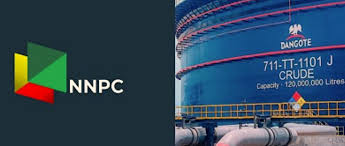
 Oil & Energy15 hours ago
Oil & Energy15 hours agoIPMAN Laments Losses From Dangote, NNPCL Fuel Price Feud

